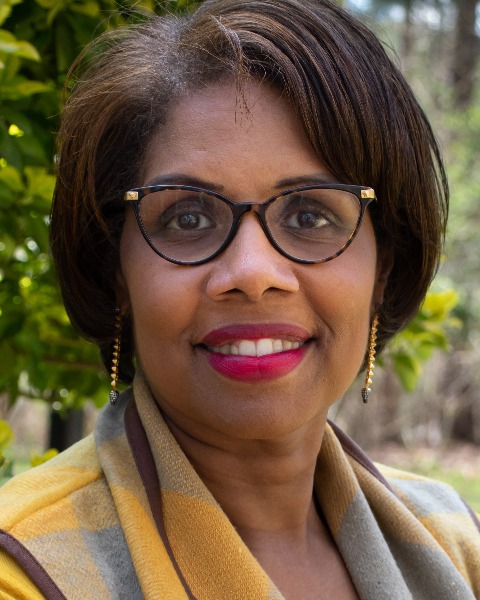Back
Health
Student Approaches
A Framework for a Holistic Approach to Student Academic Development
Friday, November 11, 2022
11:15 AM – 11:45 AM
Location: Sunset
.jpg)
Kirsten S. Ericksen, MSW, PhD
Associate Dean Associate Professor
Norfolk State University
Norfolk, Virginia, United States
Breshell Nevels, MSW, PhD
MSW Program Director
Norfolk State University
Norfolk, Virginia, United States
Author and Presenter(s)
Co-Author and Presenter(s)
Overview: Mental Health is tenuous at best. This framework prepares social work students to work effectively examining mental health disparities and effects on people of color specifically on a college campus (Lipson, et. al, 2018). Developing techniques effective in trauma-informed care and students’ own well-being (Klika & Conte, 2018) are examined.Proposal text: Mental Health is tenuous at best. It has been a challenge to observe the effects of the pandemic’s wrath on mental health. The mental health barometer for students has been evident in the classroom setting and the pandemic disproportionately impacted people of color (Lipson et. al., 2018). The extent and depth of these concerns has not previously been seen in academics, individuals who never expressed mental health concerns are exhibiting significant mental health challenges. Implementing a student-centered holistic approach to include mental health is critical in academic development. We assert academic development incorporates the whole student. A holistic approach includes mental health, supporting students’ complete well-being. Studies show rates of anxiety, depression, and stress in college students have risen significantly over the past three decades (Liu, Ping, & Gao, 2019). Social workers are increasingly working with trauma-impacted communities and educators have a responsibility to best prepare students for these environments and own well-being. Over fifty percent of case managers experience secondary trauma (Klika & Conte, 2018). Hanson and Lang (2016) discuss the necessity for resilient communities to incorporate 3 domains including trauma-informed practice (individuals), workforce development (secondary/vicarious trauma), and systems (continuity care environments). The workforce domain examines resiliency and stress buffers as important factors that impact severity of vicarious traumatization (Jordan, 2010). Educators can prepare future social workers to best engage in these environments with emphasis on the workforce development domain, beginning in the classroom. This emphasizes a holistic approach to student academic development.
The pandemic of 2020 required adaptation to meet the imposed challenges. Higher education was equally impacted as college students attempted to adapt to the new learning environment online while balancing additional demands (job loss, child care, illness, poor internet service) highlighting the presence of mental health challenges for all. Providing a supportive approach to address these compounding issues became important for a holistic learning approach. Managing multiple stressors can contribute to mental health concerns (Acharya, Jin & Collins, 2018) which may impact cognitive functioning and academic performance (Shankar & Park, 2016).
To address mental health, various strategies were implemented with intent to provide a holistic approach to students ranging from one-on-one individual student support, classroom strategies (check-ins, online discussion boards), to campus-wide events. The Instagram Live workshops met students in a relevant accessible platform found to encourage student well-being (Ericksen et. al., 2021). Some assert these efforts constitute a trauma-informed approach. Results from the Healthy Minds Survey 2020 suggest counseling centers on campus can provide transformative services (Livingston et. al., 2021). A framework to include strategies for holistic academic well-being will be examined.
This presentation examines the results of the integration of a comprehensive approach for holistic academic development for student well-being. The Agenda includes: 5 minutes: Research overview (literature, methodology) 10 minutes- Discuss holistic framework, strategies and implications for teaching and practice 10 minutes- Discuss application of strategies to address student holistic academic development and well-being in the profession. 5 minutes- Question & Answer, distribute handout with practical application of resources.
The pandemic of 2020 required adaptation to meet the imposed challenges. Higher education was equally impacted as college students attempted to adapt to the new learning environment online while balancing additional demands (job loss, child care, illness, poor internet service) highlighting the presence of mental health challenges for all. Providing a supportive approach to address these compounding issues became important for a holistic learning approach. Managing multiple stressors can contribute to mental health concerns (Acharya, Jin & Collins, 2018) which may impact cognitive functioning and academic performance (Shankar & Park, 2016).
To address mental health, various strategies were implemented with intent to provide a holistic approach to students ranging from one-on-one individual student support, classroom strategies (check-ins, online discussion boards), to campus-wide events. The Instagram Live workshops met students in a relevant accessible platform found to encourage student well-being (Ericksen et. al., 2021). Some assert these efforts constitute a trauma-informed approach. Results from the Healthy Minds Survey 2020 suggest counseling centers on campus can provide transformative services (Livingston et. al., 2021). A framework to include strategies for holistic academic well-being will be examined.
This presentation examines the results of the integration of a comprehensive approach for holistic academic development for student well-being. The Agenda includes: 5 minutes: Research overview (literature, methodology) 10 minutes- Discuss holistic framework, strategies and implications for teaching and practice 10 minutes- Discuss application of strategies to address student holistic academic development and well-being in the profession. 5 minutes- Question & Answer, distribute handout with practical application of resources.
Learning Objectives:
- define mental health concerns as it relates to people of color on a college campus.
- describe the use of student holistic academic development to enhance social work professional well-being.
- apply trauma-informed activities to enhance social work professional practice.
